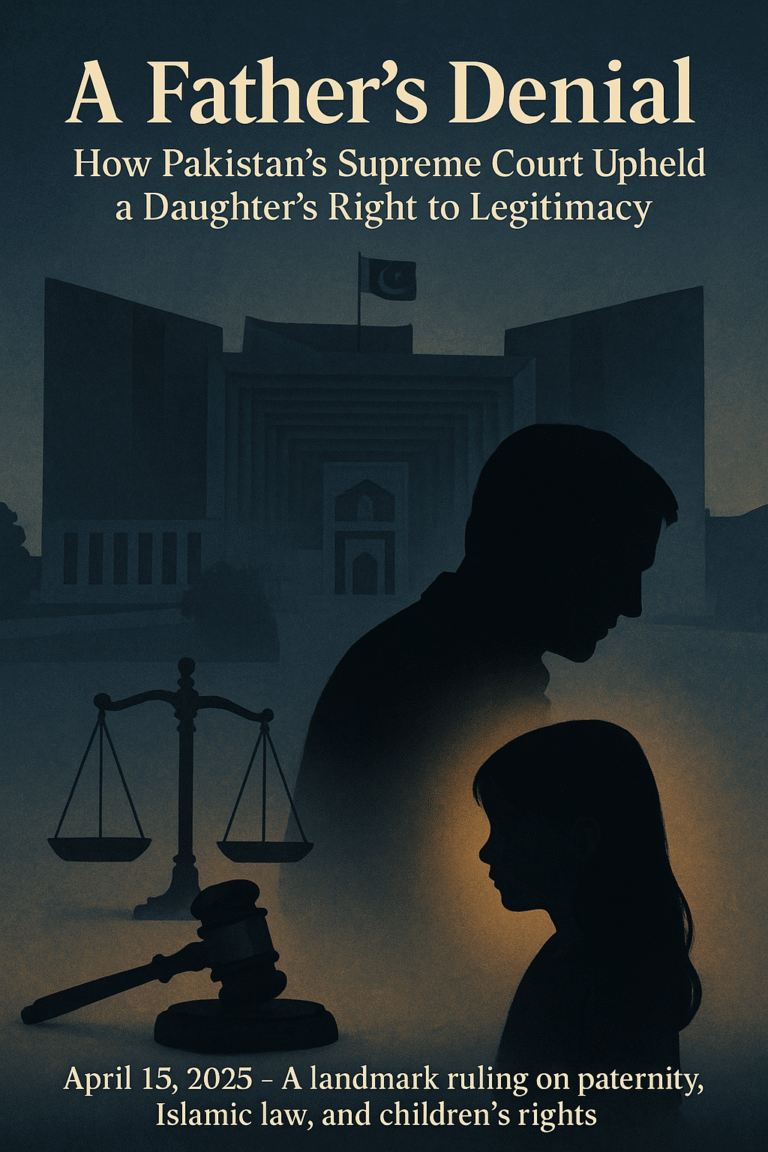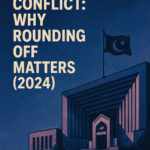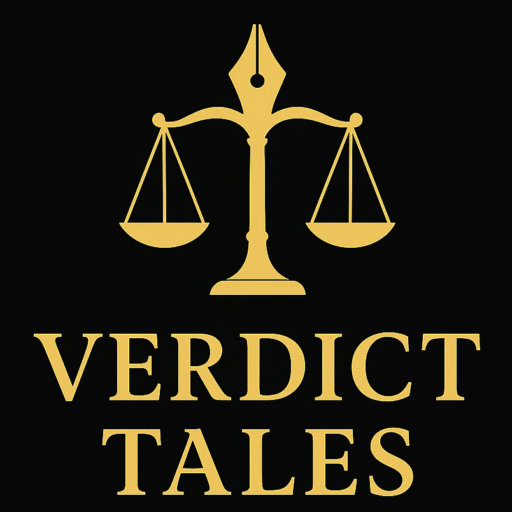The Case That Shook Lodhran
In the heart of Punjab’s close-knit community of Lodhran, a bitter family drama unfolded when Muhammad Akhtar Hussain Pirzada made an extraordinary demand in court: to legally disown his own daughter. What began as a marital dispute would become a 18-year legal odyssey testing the limits of paternity claims under Islamic law – culminating in a Supreme Court verdict that prioritized a child’s dignity over a father’s doubts.
Timeline of a Family Feud
2007
-
After the collapse of his marriage to Mst. Nadia Khan, Akhtar faces two lawsuits:
-
Nadia’s claim for child maintenance for their daughter Nibah Noor
-
His own suit to salvage the marriage
-
-
Family Court ruling: Under Islamic law’s presumption of legitimacy, Nibah is declared Akhtar’s lawful child
2008
-
All appeals fail – courts uphold paternity finding due to Akhtar’s lack of counter-evidence
2019
-
Akhtar obtains an ex-parte order from Kehror Pacca court declaring Nibah “not his daughter” (without Nadia present)
2022-2024
-
Lahore High Court twice rejects Akhtar’s petitions for DNA testing
-
Medical Board refuses testing request
April 2025
-
Supreme Court delivers final verdict
The Legal Battle Reaches Its Climax
Before Chief Justice Yahya Afridi and Justice Shakeel Ahmad, the arguments boiled down to three key questions:
-
Could a 2019 ex-parte order override 2007/2008 final judgments?
-
Court’s view: No – prior rulings with both parties present carried more weight
-
-
Was Akhtar entitled to DNA testing after 18 years?
-
Court cited: Islamic law’s strong presumption of legitimacy (Shah Nawaz v. Nawab Khan, PLD 1976)
-
“A child born in wedlock is presumed legitimate unless conclusive proof shows otherwise”
-
-
Did res judicata bar reopening the case?
-
Finding: Yes – the paternity issue was conclusively decided in 2007-2008
-
The Supreme Court’s Groundbreaking Decision
In a unanimous ruling, the Court:
✔ Upheld Nibah’s legal status as Akhtar’s daughter
✔ Denied the DNA testing request
✔ Emphasized Islamic law’s protective stance toward children’s legitimacy
Key Excerpt from Judgment:
“The law prefers certainty in family relationships over belated challenges that could stigmatize innocent children. Where a valid Nikah exists and no evidence of non-access is presented, the presumption of paternity must prevail.”
Why This Case Matters
-
Children’s Rights Prevailed: The Court prioritized Nibah’s dignity over Akhtar’s late-stage doubts
-
Islamic Law Clarified: Reinforced the high threshold for challenging paternity in Muslim families
-
Legal Finality Upheld: Stopped endless litigation through res judicata principles
Lessons for Families:
-
Paternity disputes require timely, conclusive evidence – not just suspicions
-
Ex-parte orders can’t override properly litigated judgments
-
Maintain meticulous marriage and custody documents




